What does magic mean to you? I’d be surprised if you didn’t have to sit back for a moment and ponder your answer to that question. Magic means different things to different people, but as the founder of the Magic Appreciation Tour (MAT), I’ve had to devise a concrete definition for deciding which books may be listed on the site versus which may not.
I think most of us know magic when we see it. My overall litmus test for whether or not something is magical fantasy is extremely vague but surprisingly well-understood by most writers: if you hand your book to a huge fan of magical fantasy, will that reader finish your book and agree, without a doubt, that your story included magic?
Once in a while, that basic test isn’t enough. When authors aren’t sure, they usually contact me and ask before they submit the book in question. At that point, I have to evaluate the story and make a decision on whether or not it is magical fantasy. To do that, I need to clearly define the criteria that distinguish a magical fantasy story from any other kind of fantasy story. After struggling with those criteria at various times over the past year, I can report that it is easier said than done.
What is magic?
Several genres fall under the umbrella of “speculative fiction,” and all of them include stories that could claim to contain magic. Even some science fiction stories cross the line into magical fantasy. I would argue that Jedi Knights and their use of The Force make Star Wars a magical fantasy in addition to being a science fiction icon.
On the other hand, a lot of speculative fiction is not magical fantasy. Stories with ghosts, vampires, and were-creatures are usually categorized as paranormal or supernatural, but they aren’t necessarily magical.
So what’s the difference? I looked up several definitions of each term and summarized them as follows:
- Paranormal: events or perceptions without scientific explanation.
- Supernatural: above or beyond what can be explained by natural law.
- Magic: The art of producing a desired effect through human control of supernatural agencies or forces of nature.
The terms “paranormal” and “supernatural” are practically synonyms. However, the definition of “magic” includes a critical element that the other two lack: producing a desired effect through human control.
These definitions help, but they are a long way from a set of consistent criteria that can be used to evaluate whether or not a book is magical fantasy.
What makes fantasy magical?
To show you how I arrived at the criteria I use today, it might help to take a look at a few examples.
Are the undead magical? I would say no, for the most part. A story about zombies has animated corpses running around causing chaos, but the zombies themselves are not magical. On the other hand, if the story is about a necromancer who uses a spell to raise zombies from the grave, now the story has a magical theme.
Vampire stories skirt close to the edge of magic because vampires have abilities that seem magical. For example, vampires can often transform into a bat, move with superhuman speed, and charm human victims. But do those abilities involve magic? Usually, authors present these special abilities as inherent skills that require no special ceremony, incantation, or ritual to activate. Vampire skills may be paranormal, but they are not magical.
Some months ago, an author presented me with a delightful story about flying horses and their riders. I decided to read through the excerpt to verify that the story had magical elements. I enjoyed the excerpt and I seriously wanted to include the book, but I found no evidence that magic played any role in the story; the horses could fly because they had wings. After verifying my assessment with the author, she withdrew her book from consideration with understanding and good grace.
As I mentioned above, some science fiction stories blur the line between science and magic. The same with steampunk. Even magical realism stories, which are solidly in the fantasy genre, can push an ostensibly magical theme toward the realm of science fiction by defining magic with a framework of laws, essentially giving magic a “scientific explanation.” But a line has to be drawn somewhere.
My definition of magical fantasy
After over-thinking this subject for more than a year, I’ve come up with the following five characteristics that define what magical fantasy is for the purposes of the Magic Appreciation Tour.
1. Magical energy derives from a life force, an elemental force, or a divine source.
2. Use of magical energy creates physical manifestations. I’m using the term “physical” loosely here. Some magic spells affect the psyche of the victim, so while there is no visible manifestation, a verifiable manifestation does affect a physical being.
3. The art of using magic is learned, not innate. For example, being able to transform into wolf form and then back into a human form is an innate ability of werewolves; it isn’t something they have to learn how to do. This guideline does not require that just anyone can learn to use magic. In many worlds (including mine), some people are capable of working with magical energy and some aren’t. The point is that even beings who are capable still need to learn how to “work” magic to achieve a desired effect.
4. Magical energy is wielded deliberately. Magical effects don’t “just happen.” Spells are deliberately cast by way of a ritual, incantation, gesture, device, potion, or some other mechanism that draws upon magical energy and generates a physical manifestation.
5. Magical manifestations are clearly identified as being magical in nature. This is the catch-all rule. If your story states that your characters are using magic to accomplish something, I’ll take your word for it. On the other hand, if you take what appears to be a magical effect and give it a scientific explanation, I’ll accept that your story is based in science, not magic.
I won’t claim that these five characteristics are the perfect definition of what qualifies as magical fantasy, and they may continue to change over time. For now, they cover the circumstances I’ve had to deal with so far. In fact, anyone who is familiar with the MAT catalog may have noticed that we do have a few vampire and werewolf stories. Those stories were accepted because they include magic use as well as paranormal creatures.
In the end, the whole point is to make sure that fans of magical fantasy get what they expect when they acquire a book through the MAT. I think our curated book selection and our detailed catalog listings do a good job of making sure that’s the case.
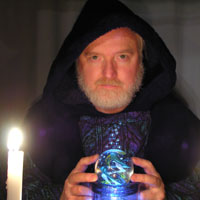
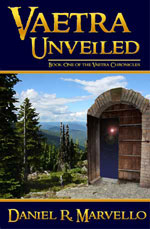
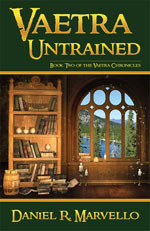
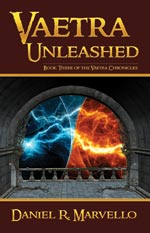
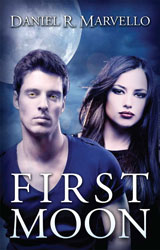
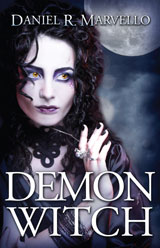
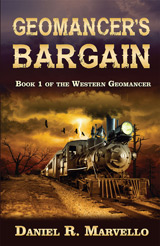
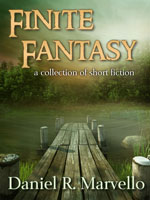
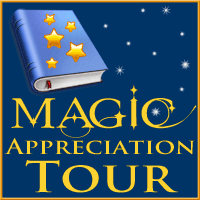

Great explanation, Daniel … very helpful!
Thanks for stopping by, Becca!
This might very well be one of thsoe instances where "I can’t define it, but I’ll know it when I see it." Definitely a tricky subject.
Hi Ken! Yes, it’s normally not a big deal. I’ve only had to deal with the decision directly a few times, but those few times really got me thinking.